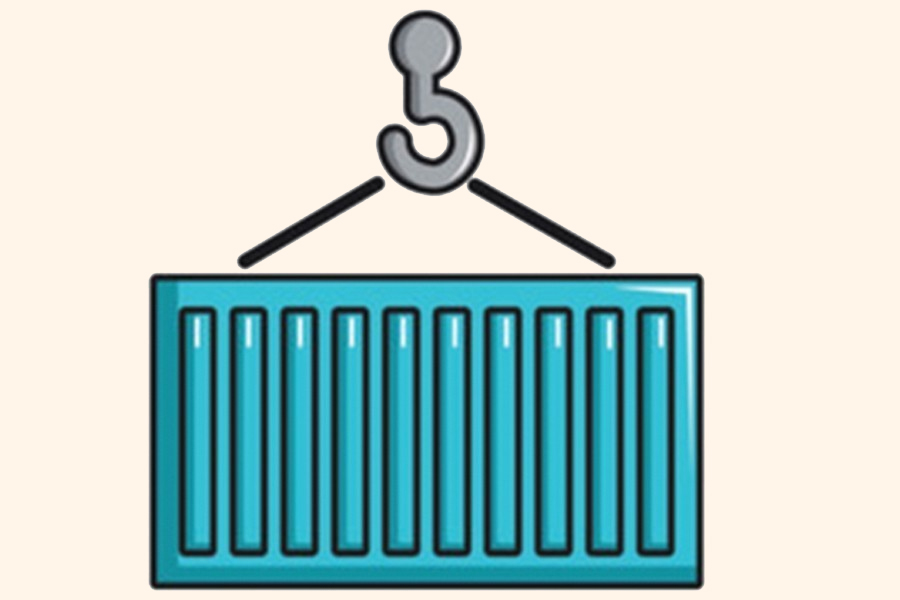National trade, import disrupted for taxmen’s strike
Potential container congestions, price escalation of imported goods feared

Published :
Updated :

 A prolonged pen-down protest by revenue officials demanding the scrapping of an ordinance that bifurcated their board takes a heavy toll on total supply-chain management of imports, besides tax-collection slowdown.
A prolonged pen-down protest by revenue officials demanding the scrapping of an ordinance that bifurcated their board takes a heavy toll on total supply-chain management of imports, besides tax-collection slowdown.
Meanwhile, the protesting officials of the National Board of Revenue (NBR) have suspended their strike for today (Tuesday) following government assurances of discussions.
A panel for advisers, led by Finance adviser Dr Salehuddin Ahmed, would hold meeting with the dissenting revenue officials to discuss ways out of the standoff.
The protesters said their pen-down strike "will be paused for a day due to the meeting, and further decisions on the protests will come after the discussions".
At a press briefing Monday, they said their pen-down strike will be paused for a day to hold meeting with advisers.
Amid the strike, save passenger services and export, all other services have halted for the last five consecutive days, including assessment of imported goods at the customs points.
Both freight forwarders, operators of inland container depots, and clearing and forwarding agents have aired their concerns over potential container congestions and substantial increase in the prices of imported goods following supply-chain disruptions.
Nurul Qayyum Khan, President of the Bangladesh Inland Container Depots Association (BICDA), says the banner is hung on pen-down and strike of the customs officials at Chittagong customs house (CCH), making the release of goods slower.
"Only direct delivery and perishable goods are being released from the ports that had arrived and been assessed before the strike, but as customs assessment is halted, importers are unable to pay duty-taxes to release the goods," he adds.
"ICD's are delivering only 50 import goods while thousands are being delivered from the Chittagong customs house."
SM Syful Alam, Secretary-General of the Federation of Bangladesh Customs Clearing and Forwarding Agents Association (BCCFAA), apprehends a serious impact due to slowdown in import-export trade following the protests.
"Starting from fuel, liquefied natural gas to raw materials for apparel exports, all have almost halted for the last five days," he says, fearing potential container congestion.
"Customs ports are on the verge of collapse as every day import containers are coming and piling up here," he adds.
He urges the revenue board to waive port charges and other fees for delay in taking delivery of imports after the protest ends.
Kabir Ahmed, Chairman of Conveyor Logistics Limited and President of the Bangladesh Freight Forwarders Association (BAFFA), takes a serious note of domino effect of such trade-disruptive strike.
"It's not a good signal for foreign buyers and global trade partners that the customs ports remained almost dysfunctional during the last five days," he told the FE writer.
He demands the issue be resolved amicably through discussion.
Foreign buyers will lose their confidence and Bangladesh will be at risk of compounding the ongoing trade tensions due to US tariff and trade war with China, he alerts.
Mohammed Alamgir Hossain, first Joint Secretary of Chittagong C & F Agents, points out that the pen-down action has hampered the delivery of goods from Chittagong seaport, the prime of Bangladesh.
He also says the pen-down programme is suspended today for meeting with the advisers concerned of the interim government.
On average, Chattogram port delivers around 5,000 twenty-foot equivalent units (TEUs) of import containers daily. This includes approximately 10 per cent LCL (less than container load) containers. A significant number of trucks, over 1,000, enter the port daily to receive LCL cargo deliveries.
A senior customs official says they are working after the pen-down ends at 3.0pm every day, but agrees that they are unable to assess the huge volume of goods in this short time.
However, the official says customs will try to make up for the disruptions with extra effort after the government accepts their demands.
The revenue officials broke out into protests following the issuance of the ordinance on NBR bifurcation without discussing it with the stakeholders and maintaining secrecy to incorporate many of the "controversial clauses". Even, the ordinance has bypassed the recommendations of the NBR advisory committee for reform.
doulotakter11@gmail.com


 For all latest news, follow The Financial Express Google News channel.
For all latest news, follow The Financial Express Google News channel.